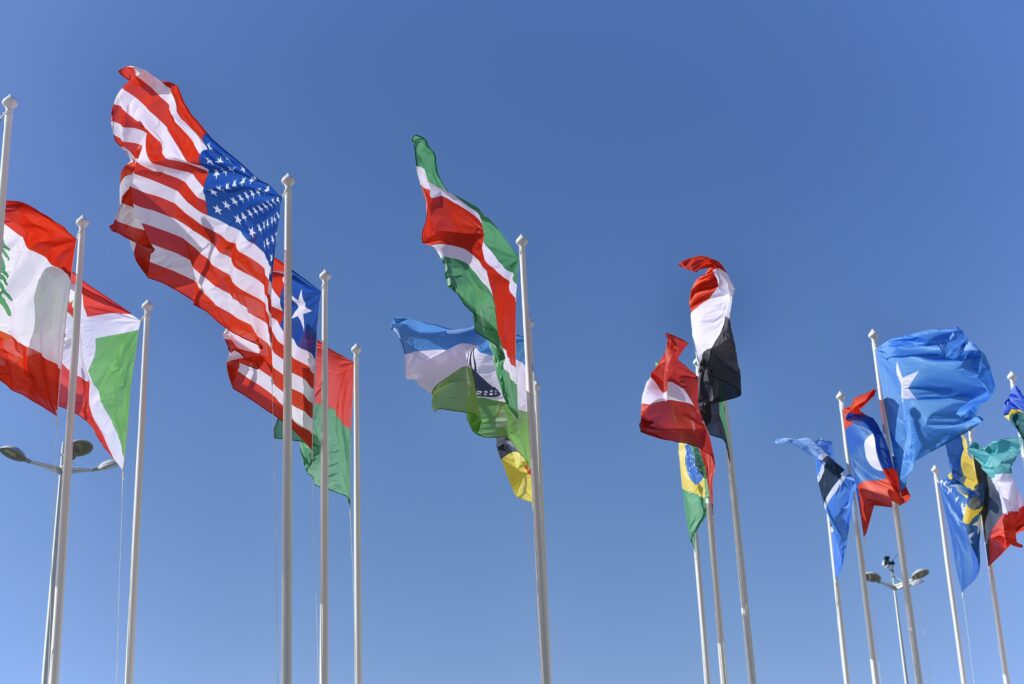This article may contain affiliate links. For details, visit our Affiliate Disclosure page.
Introduction:
The United Nations, a global organization founded in the aftermath of World War II, serves as a platform for international cooperation, diplomacy, and dialogue. Its membership encompasses a majority of nations worldwide, each contributing to the collective pursuit of peace, development, and human rights. However, amidst the vast tapestry of nations, there exist territories that remain outside the bounds of the United Nations. In this intriguing exploration, we venture into the uncharted territories, uncovering the countries that have chosen not to join the esteemed international body. Join us as we delve into the complexities, historical context, and diverse motivations behind the decision of these nations.

Vatican City: A Spiritual Sovereign State:
Nestled within the heart of Rome, the walled enclave of Vatican City stands as the spiritual and administrative seat of the Roman Catholic Church. Despite its small size, Vatican City is recognized as a fully independent state, exercising sovereignty over its territory and possessing its own unique governance structure.
The absence of Vatican City from the United Nations stems from its distinct status as a religious entity. The Holy See, which is the governing body of Vatican City, enjoys observer status in the United Nations, allowing it to participate in certain discussions and activities without full membership. This arrangement reflects the Vatican’s desire to maintain its focus on spiritual matters while engaging with the international community on matters of global importance.
Taiwan: A Complex Diplomatic Landscape:
Taiwan, officially known as the Republic of China (ROC), is a sovereign nation situated in East Asia. Its relationship with the United Nations is complex and intertwined with geopolitics, regional dynamics, and the intricate cross-strait relationship with the People’s Republic of China.
Following the Chinese Civil War, the ROC government relocated to Taiwan in 1949, claiming to be the legitimate representative of China. However, in 1971, the United Nations recognized the People’s Republic of China as the rightful representative of China, resulting in Taiwan’s exclusion from the organization.
While Taiwan is not a member of the United Nations, it has actively pursued participation in international organizations and established diplomatic relations with several nations. Taiwan’s exclusion from the United Nations has sparked debates surrounding the principles of self-determination, sovereignty, and the complexities of international recognition.
Kosovo: A Contested Territory:
Kosovo, a landlocked region in the Balkans, declared independence from Serbia in 2008. However, its path to international recognition and membership in the United Nations has been met with challenges and disputes.
The status of Kosovo remains a topic of contention, as Serbia and several other countries do not recognize its independence. This lack of consensus has hindered Kosovo’s inclusion in the United Nations, as the organization operates under the principle of sovereign statehood recognized by the majority of its member states.
Efforts to achieve full recognition and United Nations membership for Kosovo continue, with ongoing negotiations, diplomatic initiatives, and engagement with regional and international partners. The situation serves as a reminder of the complexities surrounding territorial disputes, self-determination, and the delicate balance between statehood and international recognition.
Western Sahara: A Disputed Territory:
Western Sahara, a region located in North Africa, remains a territory with a contested status. Following the withdrawal of Spain in 1975, both Morocco and the Polisario Front, representing the Sahrawi Arab Democratic Republic (SADR), laid claim to the land. The situation has led to a prolonged dispute and ongoing tensions.
The absence of Western Sahara from the United Nations is a reflection of the complexities surrounding its political status. While some countries recognize the SADR as an independent state, others view Western Sahara as an integral part of Morocco. The lack of a consensus among the international community has hindered its inclusion in the United Nations.
Efforts to resolve the Western Sahara conflict persist, with diplomatic initiatives, negotiations, and United Nations-led peacekeeping missions. The pursuit of a just and lasting solution remains a key objective, aiming to address the aspirations of the Sahrawi people and foster stability in the region.
Palestine: A Quest for Statehood:
The Palestinian territories, including the West Bank and the Gaza Strip, have sought recognition as an independent state within the United Nations. The complex Israeli-Palestinian conflict and the longstanding quest for self-determination have shaped the Palestinian pursuit of international recognition.
Palestine’s journey towards United Nations membership has faced numerous challenges, including political disagreements, regional dynamics, and divergent perspectives on statehood. Efforts to gain full recognition and membership have involved diplomatic initiatives, peace negotiations, and engagement with international partners.
While Palestine enjoys observer status at the United Nations and is a member of certain specialized agencies, its aspirations for full membership remain unfulfilled. The quest for Palestinian statehood continues, underlining the significance of finding a just and lasting resolution to the Israeli-Palestinian conflict.
Conclusion:
As we conclude our exploration of countries outside the United Nations, we recognize the intricate web of historical, political, and territorial complexities that shape their absence from the international organization. Vatican City’s spiritual sovereignty, Taiwan’s intricate diplomatic landscape, Kosovo’s contested status, Western Sahara’s disputed territory, and Palestine’s quest for statehood showcase the diverse array of circumstances that contribute to a nation’s decision to remain outside the United Nations.
The study of these countries outside the United Nations highlights the intricate tapestry of global politics, sovereignty, and self-determination. It emphasizes the importance of addressing unresolved conflicts, fostering dialogue, and seeking peaceful resolutions to territorial disputes. The pursuit of inclusive and equitable international cooperation remains crucial for promoting global stability, peace, and development.
As the world continues to evolve, it is imperative to strive for a more comprehensive and inclusive United Nations, where the diverse voices and aspirations of nations are heard and respected. Through dialogue, understanding, and collaboration, we can work towards building a more interconnected and harmonious global community that upholds the principles of peace, justice, and mutual respect.
